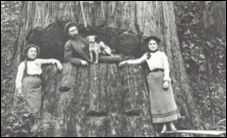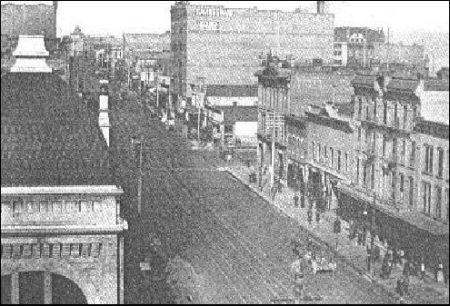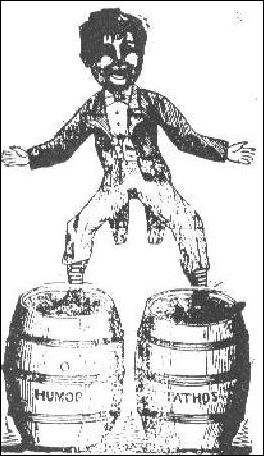Footnotes 43-50
- 43. Opie Read, The American Cavalier (Chicago 1903), p. 129. See review of Way Out Yonder in State, Vol. 3 (1899), p. 81; Fuller prefaced this installment of the review section with some thoughts on the "Advance of the Western Pen."
- 44. Washington Historian, Vol. 1 (1899), p. 32. The poem seems first to have appeared in the July 4, 1889, issue of the Globe. And it appeared in what was probably Visscher's last publication, a compilation of his poems (one pertaining to each state) that included President Wilson's war message: The Stars of Our Country: A Collection of Poems (Philadelphia [ca. 1917]), Way Out Yonder, pages 9, 234 (last quotation).
- 45. See Carrie Adell Strahorn, Fifteen Thousand Miles by Stage (New York 1911), chapter 44, and Oliver Knight, "Robert E. Strahorn, Propagandist for the West," PDQ, Vol. 59 (1968), pages 33-35.
- 46. Not long after she acted in Virginius with her father and the others, Viva Glen Visscher announced her intention of making a career of the stage — Washington Standard, Sept. 28, 1894; for her father's worries about a life in theater, see Union, July 6, 1894. Edgar Allan Poe, "Eldorado."
- 47. Globe, June 2 ("three cheers"), p. 22, 1889; News, June 3, 1893 ("Goodbye, Wheelwright"). Visscher, who so often set his thoughts to verse, wrote what to me is one of his most compelling pieces using this incident and this imagery. The poem, "His Angel Slept," appeared in the News on June 23, 1893. It ends this way:
He who had been guarded well,
At he hands of demons fell —
Through the shadows came they creeping;
Worn, his angel guard was sleeping.
Wheelwright's futile efforts can be glimpsed in letters he wrote appealing for support. Wheelwright to N.G. Blalock of the Executive Committee of the Washington World's Fair Commission, July 26 and Aug. 8, 1892, and to "Hon. Senators & Representatives of the Wash. State Legislature, Olympia," Feb. 23, 1893, Boxes 4 and 6, Washington World's Fair Commission Records.
- 48. Globe, June 2, 1889 (quotation). State, Vol. 2 (1898) p. 79, and Vol. 5 (1900), page 63; Fay Fuller's connection with this periodical may explain the appearance of Visscher's work in it. Visscher to Tom Nicholl, Jan. 16, 1924, Tom J. Nicholl, Tom J. Nicholl Collection, Washington Historical Society, Tacoma. There are a few other Visscher items in this collection. Nicholl was a onetime Chicago friend who did illustrations for some of Visscher's books. "Kentuckian's Lament," Visscher, Blue Grass Ballads and Other Verse (New York 1900; rpt. 1971) page 52.
- 49. Fetch over the Canoe.
- 50. Ibid., see chap. 4; also p. 102 "Alone I Stand" (quotations). This peculiar and pathetic little book contains four composite illustrations featuring the photographed face of what I take to be Phillip's "Haidee" — perhaps Hazel Kirke Strayer, to whom the musical score at the beginning of the book is dedicated. Also, there is a halftone of what appears to be Visscher clad in a robe and seated at a study desk looking up at a portrait of the same woman.
|
|

 810 Central Ave.,
810 Central Ave., 

